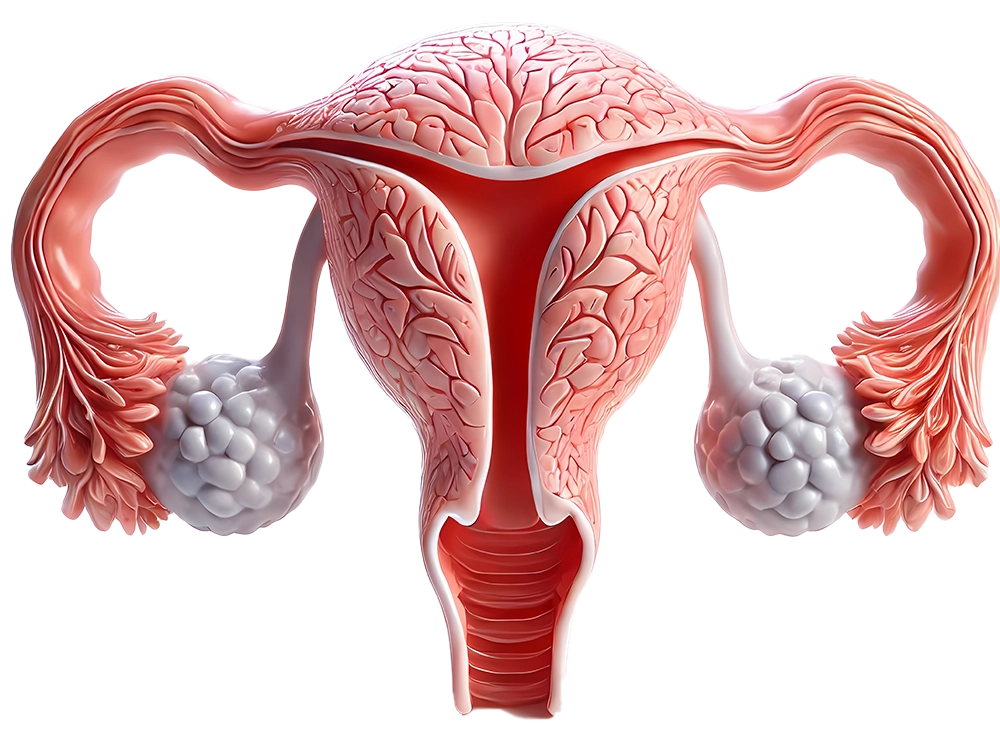The journey to parenthood can be challenging and frustrating for couples struggling to conceive. Many factors can influence fertility, and understanding these can be the first step toward finding a solution.
Learn how a fertility assessment can help, who might benefit from it, and the available treatments that can bring couples closer to achieving parenthood.

Fertility Assessment & Services at Pacific Women's Clinic
The journey to parenthood can be challenging and frustrating for couples struggling to conceive. Many factors can influence fertility, and understanding these can be the first step toward finding a solution.
Learn how a fertility assessment can help, who might benefit from it, and the available treatments that can bring couples closer to achieving parenthood.
A fertility assessment is a detailed evaluation of both partners’ reproductive health. It calls for a series of tests and procedures aimed at identifying any potential causes of infertility, which can range from hormonal imbalances to structural abnormalities.
For many couples, a fertility assessment is the first step in their journey to understand why they may be having trouble conceiving and what can be done to help.

Fertility assessments are generally recommended for couples who have been trying to conceive for over a year without success. However, some individuals may consider a fertility assessment sooner, especially if they have specific health conditions or risk factors.
For women over 35, it’s advised to seek an assessment after six months of unsuccessful attempts at conception. Additionally, those with a history of irregular menstrual cycles, endometriosis, or polycystic ovary syndrome (PCOS) or who have had recurrent miscarriages may benefit from an earlier evaluation.

The procedures involved in a fertility assessment generally include the following:
This first step thoroughly discusses both partners' health history, lifestyle habits, and any underlying or past health conditions that may influence fertility. A fertility specialist will inquire about the following:
After discussing these details, a physical examination may be conducted to identify any visible or palpable signs that could affect fertility. This examination can include checking for abnormalities in the reproductive organs or signs of hormonal imbalance, like excess facial hair or acne in women, which may indicate PCOS.
Hormones regulate the reproductive system, and imbalances can disrupt the processes necessary for conception. Blood tests are used to measure various hormone levels in both partners, depending on individual needs and symptoms. Key hormones tested may include:
For women, tracking ovulation is a crucial aspect of assessing fertility. Knowing if and when ovulation occurs helps identify whether the body is releasing eggs regularly, which is essential for conception. Methods for tracking ovulation include:
For men, a semen analysis is a fundamental part of a fertility assessment. This test examines various parameters of sperm health, including:
A semen analysis provides a comprehensive overview of sperm health and can identify specific factors that may contribute to male infertility.
Imaging studies are used to examine the reproductive organs more closely, helping to detect structural abnormalities that may interfere with fertility. Common imaging studies include:
In some instances, genetic testing may be advised to rule out inherited conditions that could impact fertility or pregnancy outcomes. Genetic testing is recommended for:
Genetic testing can include karyotyping (analysing chromosome structure) and screening for specific genetic mutations. In some cases, preimplantation genetic testing (PGT) can be conducted in conjunction with IVF to screen embryos for genetic conditions before implantation.

At our private sexual health clinic, we offer personalised family planning solutions to support your reproductive health and future fertility goals.
Our doctors provide individualised consultations to help you choose the right contraceptive method—whether you’re considering hormonal birth control, non-hormonal options, or the long-acting reversible contraceptives (e.g. hormonal implant or IUD) available in Singapore.
We tailor recommendations based on your health, lifestyle and future plans for parenthood.
Sexual health plays a key role in your ability to conceive. At our specialist clinic in Singapore, we provide comprehensive sexual health screenings to detect and manage conditions that may affect fertility, including infections, hormonal imbalances, and menstrual irregularities.
If you’re experiencing concerns like painful intercourse, low libido, or irregular periods, addressing these early can improve your chances of a successful pregnancy.
For couples struggling to conceive, a fertility assessment can provide invaluable insights into potential barriers to pregnancy and identify appropriate treatment.
Pacific Healthcare Specialist Centre offers fertility assessment and services in Singapore. We also provide a range of fertility treatments tailored to each couple’s needs, combining expertise with personalised care to support couples on their journey to parenthood.

A sexual health screening includes a consultation to discuss your symptoms and risk factors, followed by tests for common sexually transmitted infections (STIs) such as chlamydia, gonorrhoea, syphilis, HIV, and HPV. It may involve urine tests, blood tests, or swabs.
Your doctor may also check for common vaginal infections such as candidiasis or bacterial vaginosis and perform a pap smear (cervical cancer screening as recommended under the national Screen for Life programme). Regular screenings are key to early detection and effective treatment, even if you don’t have symptoms.
The frequency of sexual health screenings depends on your age, sexual activity, and risk level. Generally, it’s recommended to get tested annually if you are sexually active, have new or multiple partners, or are under the age of 25.
If you’re in a long-term monogamous relationship with no symptoms, your doctor may advise less frequent testing. Always consult your healthcare provider to determine the best screening schedule for your needs.
Copyright © 2026 Pacific Healthcare Specialist Centre (Women's Clinic)